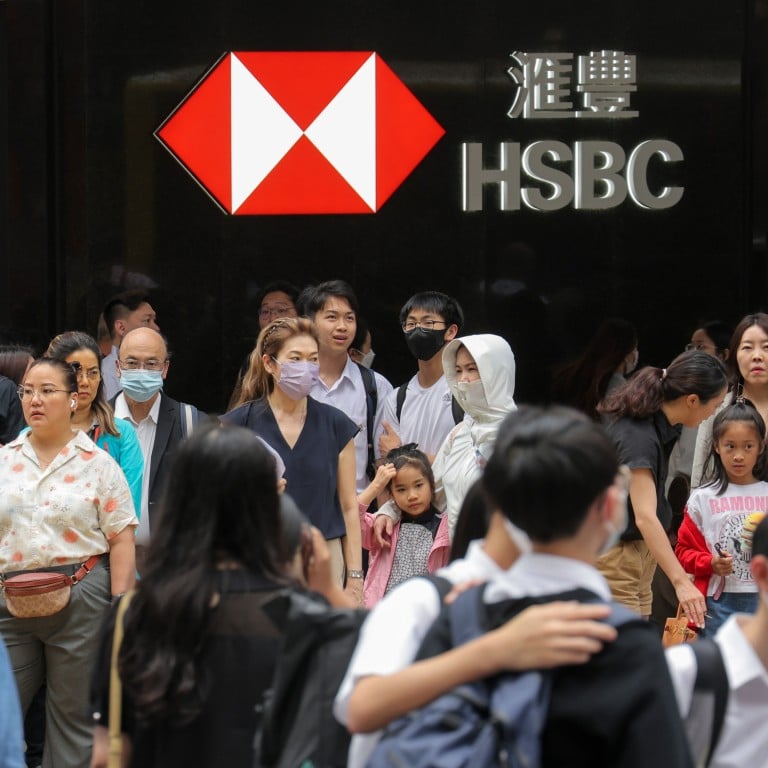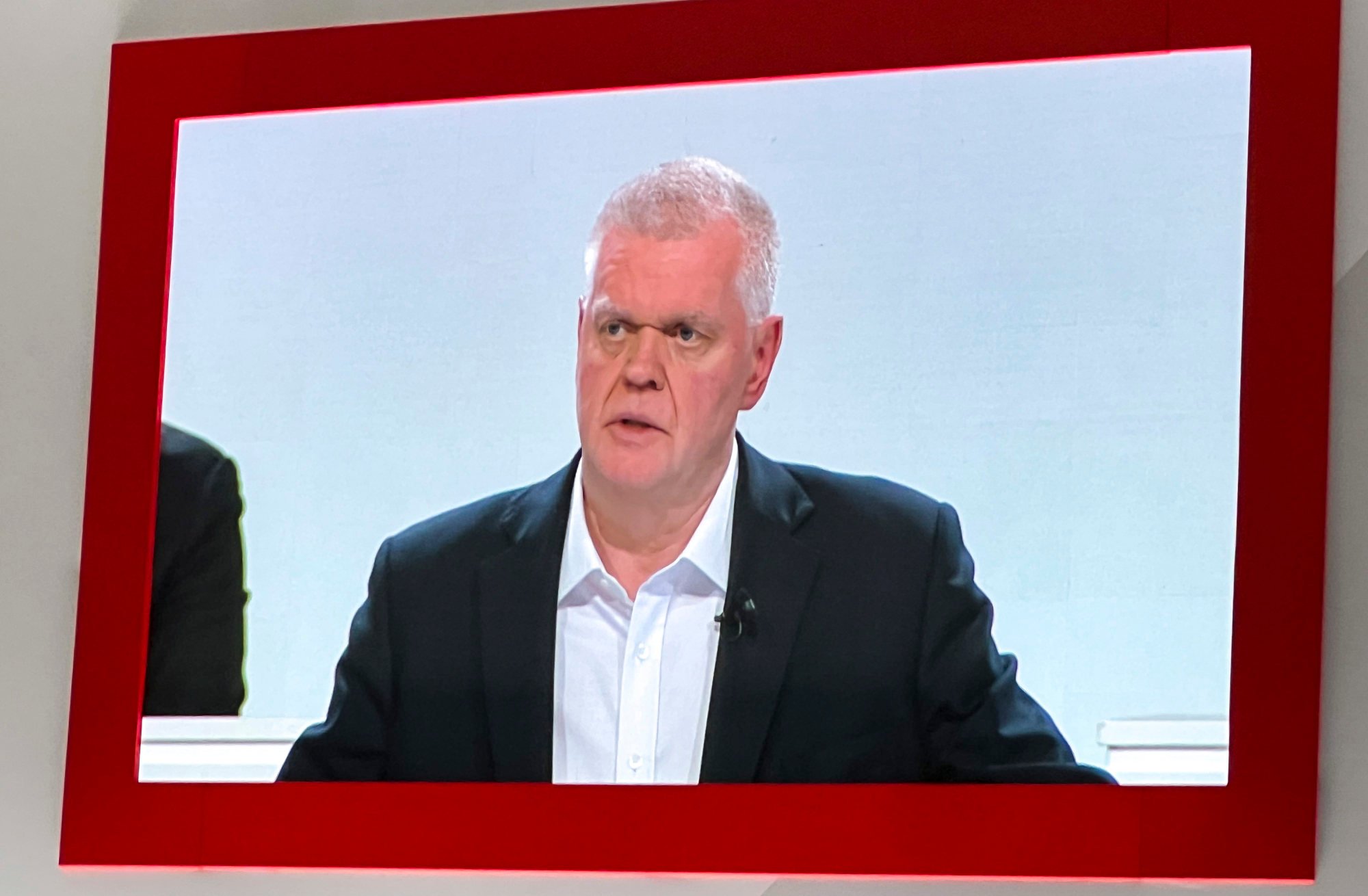
HSBC’s third-quarter pre-tax profit misses estimates on hedging charges, bad loans to China’s property sector
- Net profit rose 180 per cent to US$5.6 billion in the September quarter, compared with US$2 billion a year earlier
- HSBC reported credit impairments of US$1.1 billion in the third quarter, including US$500 million related to its mainland China real estate portfolio
Net profit rose 180 per cent to US$5.6 billion in the three months to September, or US$0.29 per share, from US$2 billion in the period last year, missing the US$6.16 billion net profit expected by analysts, according to a consensus estimate compiled by Bloomberg.
Pre-tax profit jumped 147 per cent to US$7.71 billion in the quarter, compared with US$3.15 billion a year earlier. This was worse than market estimates of US$8.26 billion.
HSBC also announced a new US$3 billion share buy-back programme that will commence soon and a third-quarter dividend of US$0.1 per share, taking three quarterly dividends to a total of US$0.30 per share.

“We have had three consecutive quarters of strong financial performance and are on track to achieve our mid-teens return on tangible equity target for 2023,” said CEO Noel Quinn said in an earnings statement to the Hong Kong stock exchange on Monday.
“There was good broad-based growth across all businesses and geographies, supported by the interest rate environment. Our wealth business also gained further traction, attracting US$34 billion of net new invested assets in the quarter and growing wealth balances by 12 per cent compared with last year.”
The London-based bank, one of Europe’s largest by assets, generates much of its revenue in Asia.
HSBC buys Citigroup’s US$3.6 billion China consumer wealth business
The lender took a US$600 million charge related to general treasury operations as part of its risk management measures to cope with an elevated interest-rate environment. The bank is expected to take another US$400 million charge in the fourth quarter.
The earnings also included credit impairments of US$500 million related to potential soured loans in its Chinese real estate portfolio. The bank’s total China commercial real estate exposure stood at US$13.6 billion at the end of September, a decline of US$600 million from 2021 following a US$7.7 billion write down.
In the first half, the bank took a US$300 million credit impairment hit to its portfolio, after making US$142 million in provisions last year towards bad debts.
“It is now realistic to assume that there may be more provisions in the China offshore commercial real estate portfolio that is booked in Hong Kong,” chief financial officer Georges Elhedery said in a media call.
“We continue to expect ECL [expected credit losses] charges of around 40 basis points of average gross loans in 2023. We continue to monitor risks related to our exposures in mainland China’s commercial real estate sector closely.”
Bank of East Asia, Industrial and Commercial Bank of China as well as China Construction Bank have all made additional provisions for their exposures to Chinese real estate in the first half of this year after mainland developers’ debt crisis escalated.
HSBC’s shares fell 1.5 per cent to HK$57.20 at the close on Monday.
HSBC’s profit increase was partly due to a one-off US$2.3 billion impairment in last year’s third quarter related to the planned sale of the group’s retail banking operations in France. Provisions of US$2.1 billion were reversed in the first quarter this year after the completion of the transaction became less certain.
The results come as HSBC faces a challenging economic environment in Hong Kong, its biggest market, and in Britain, its second-largest market.
The bank reported a 32 per cent year-on-year increase in its bad-debt charges in Hong Kong for the third quarter to US$659 million. This was offset by a 19 per cent gain in interest income to US$4.84 billion and an 18.5 per cent jump in net fee income to US$2.65 billion.
This resulted in a 20 per cent increase in its pre-tax profit in its Hong Kong business to US$2.23 billion, compared with US$1.7 billion a year earlier.
Hong Kong business chiefs confident in economic rebound, city’s finance hub status
Overall, the bank’s Asian business reported a third-quarter pre-tax profit increase of 20 per cent to US$4.08 billion, from US$3.5 billion a year earlier.
Revenue rose by 40 per cent to US$16.16 billion, compared with US$11.58 billion a year earlier, while net interest income rose by 16 per cent to US$9.25 billion, compared with US$7.99 billion a year earlier.
Net interest margin (NIM), an important measure of profitability, rose 19 basis points to 1.7 per cent, compared with 1.51 per cent in last year’s third quarter. It was 1.72 per cent in the second quarter.
Pre-tax profit in its wealth and personal banking segment rose 25 times to US$2.8 billion, compared with US$111 million a year earlier.
“We have been investing in wealth for some time and do therefore expect to see this growth,” said Elhedery. The lender recently acquired Citigroup’s wealth business in mainland business as part of its expansion plan.
In the global banking and markets segment, pre-tax profit declined by 7 per cent to US$1.3 billion, compared with US$1.5 billion a year earlier. The commercial segment reported a pre-tax profit of US$2.8 billion, compared with US$2 billion last year.



